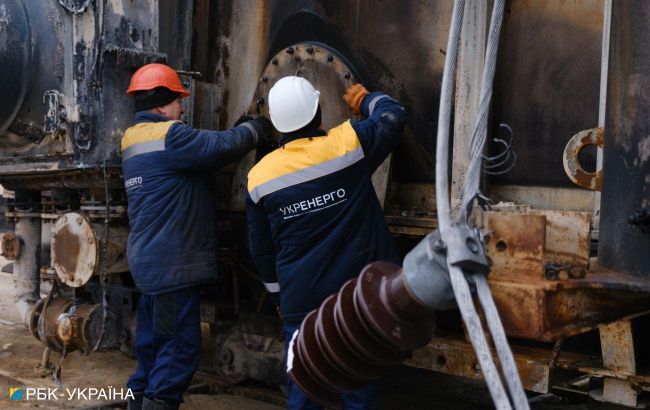Germany allocates €70 million to help Ukraine's energy sector this winter
 Illustrative photo (Vitalii Nosach, RBC-Ukraine)
Illustrative photo (Vitalii Nosach, RBC-Ukraine)
Germany will allocate a winter aid package worth €70 million to ensure Ukraine has heat and electricity. The additional funds will provide Ukrainian cities with small power plants, heating systems, generators, and solar systems, according to Germany's Ministry for Economic Cooperation and Development.
According to the announcement, the funds are intended to help people in Ukraine remain in their homeland and resist Russian attacks. Russia is deliberately targeting Ukraine’s civilian energy infrastructure to devastate the Ukrainian economy and defense capabilities, and to force people out during the winter.
"Russia aims to exhaust and expel Ukrainians through its attacks on energy supplies. Heat and electricity are vital for survival, especially in winter. Ukraine is resisting, but it needs support. Germany and many allies are firmly on its side," said Federal Development Minister Svenja Schulze.
She explained that Germany is helping Ukraine restore its energy supply in a decentralized manner so that Russia will no longer be able to destroy it as easily.
"This support is a matter of solidarity, but it also aligns with Germany's own interests. Ukraine is also defending our security in Europe and Germany in this war," she added.
The ministry highlighted that Russia's massive attacks on Ukrainian power plants and transmission lines in recent months have destroyed 80% of thermal power plants and more than a third of hydroelectric stations, and the attacks continue.
"Ukraine’s Ministry of Energy believes that noticeable power outages this winter are unavoidable, despite extensive repair efforts. As a result, apartments could become uninhabitable due to the cold, schools may be forced to close, and factories will halt production. Frozen water pipes could burst, jeopardizing water supplies," the report stated.
The additional €70 million in aid is designed to help protect the Ukrainian people from the consequences of these attacks. By rapidly expanding decentralized and flexible energy production with small power plants, heating stations, generators, and solar systems, the worst effects on affected cities and towns can be mitigated. Public centers, hospitals, schools, and other social institutions will gain more secure and independent energy supplies.
The assistance is targeted at communities whose energy and heating supplies have been severely disrupted by damage and outages, with special attention given to municipalities that have taken in displaced persons.
It is also worth recalling that US Secretary of State Antony Blinken said that since Russia's full-scale invasion began, the G7 countries and other partners have raised over $4 billion for the restoration of Ukraine’s energy infrastructure.

